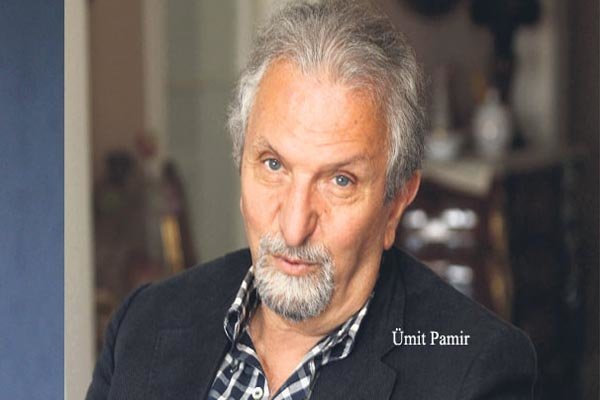Turkey has strategic view toward Arabs of Persian Gulf region: Umit Pamir

TEHRAN – Former Turkish ambassador to NATO, Umit Pamir, who currently is a member of Special Group of Experts selected by the NATO secretary general to draft the military bloc’s New Strategic Concept, says Turkey has a strategic view toward the Arab states bordering the Persian Gulf.
Turkey “views its relations with the region from a strategic perspective,” Pamir tells the Tehran Times.
Following is the text of interview with Pamir who was permanent representative of the Turkish delegation to NATO between 2004 and 2007 and the Turkish mission to the UN between 2000 and 2004:
Q: Why has Turkey decided to enter Persian Gulf security structure?
A: Turkey has strong ties with the (Persian) Gulf countries based on common history, values and interests and views its relations with the region from a strategic perspective.
Primary motive behind Turkey’s approach to the (Persian) Gulf region is supporting peace, stability and security of the (Persian) Gulf.
More specifically, Turkey and the (Persian) Gulf region flank a highly important and volatile region, therefore the two sides need to cooperate more in the face of common threats, first and foremost terrorism.
In this regard strengthened cooperation is a safeguard for the peace, security and stability of the wider region.
As part of its strategic engagement with the region, Turkey established a dialogue channel with the Gulf Cooperation Council (GCC) as an institution at high level. Turkey-GCC High Level Strategic Dialogue meetings have been held since 2008. Security is one of the issues that has been discussed at those meetings.
Q: Why is Turkey constructing a military base in Qatar?
A: Turkey considers peace, stability and security of the (Persian) Gulf region as its own.
With this understanding, Turkey is trying to improve its relations with those countries in all fields including the military field. Current and emerging challenges make it necessary for both sides to deepen their cooperation and coordinate their efforts.
In this regard, Turkey has developed excellent relations with Qatar. Reciprocal high level visits between the two countries have further enhanced and deepened the bilateral relations. Both countries have strong will to continue to deepen their cooperation and share similar views on regional issues.
With a view to further developing our relations, a military agreement was signed between the two countries during the visit of the Emir of Qatar to Turkey on December 2014, main component of which is setting up of a Turkish military base in Qatar.
We believe that the cooperation in the framework of this agreement will contribute to security of Qatar as well as to that of the entire region.
Q: Why does Turkey prefer to cooperate with Persian Gulf littoral Arab states directly instead of indirectly via NATO?
* NATO has a solid record of cooperation with countries in the (Persian) Gulf. The launch of Istanbul Cooperation Initiative 12 years ago was a strong demonstration that the security and stability of this region is of strategic interest to NATO – just as the security and stability of the Euro-Atlantic area matter to the (Persian) Gulf region.
* The United Arab Emirates, Kuwait, Qatar and Bahrain have all made good use of the opportunities for dialogue and practical cooperation under the ICI. Saudi Arabia and Oman haven’t formally joined (although the door is open!), but we’re glad they have gradually stepped up their relations with NATO as well.
* We’re also very pleased that (Persian) Gulf countries have proved increasingly effective security providers, including well beyond this region. They made valuable contributions to NATO mission in Afghanistan. They took an active part in the operation to protect the people of Libya five years ago. And they are again playing a major role in the international coalition to counter ISIL.
* Therefore, there is an ever evolving cooperation between (Persian) Gulf countries and NATO. Yet, there is still ground to be covered in terms of increasing interoperability, mutual engagement and bringing security considerations closer.
* Meanwhile there are strong historical and cultural ties between (Persian) Gulf countries and Turkey as well.
* In this regard, Turkey’s bilateral cooperation with individual (Persian) Gulf countries is not something that constitutes an alternative track to working with them through NATO. On the contrary, building on existing synergies, these two tracks could be mutually reinforcing and could be furthered simultaneously.
* There are ample examples of this in the region and a number of NATO Allies have bilateral cooperation schemes with certain (Persian) Gulf countries, which benefit NATO and NATO operations as well.
* On this basis Turkey’s bilateral cooperation with (Persian) Gulf countries is intended in the first place to meet all involved parties national interests. At the same time, this will also be reinforced through existing cooperation between (Persian) Gulf countries and NATO.
Q: Is Turkey interested in creating inclusive security architecture for the region with the presence of Iran and Iraq, a security arrangement that can result in departure of foreign forces from the region?
* One of the basic tenets of Turkish foreign and regional security policy is to underpin cooperative security through regional ownership. Turkey has a very consistent track record in this regard. The Black Sea region, the Balkans and the Heart of Asia - Istanbul Process for Afghanistan are concrete examples.
* Certainly such an approach requires an equal degree of willingness, ability and well as unity of efforts on the part of all interested sides, for such an initiative to take hold and deliver concrete outcomes.
On this basis, ensuring security through regional efforts, on the basis of regional ownership may certainly at some point obviate the need for the presence of foreign forces.
Leave a Comment